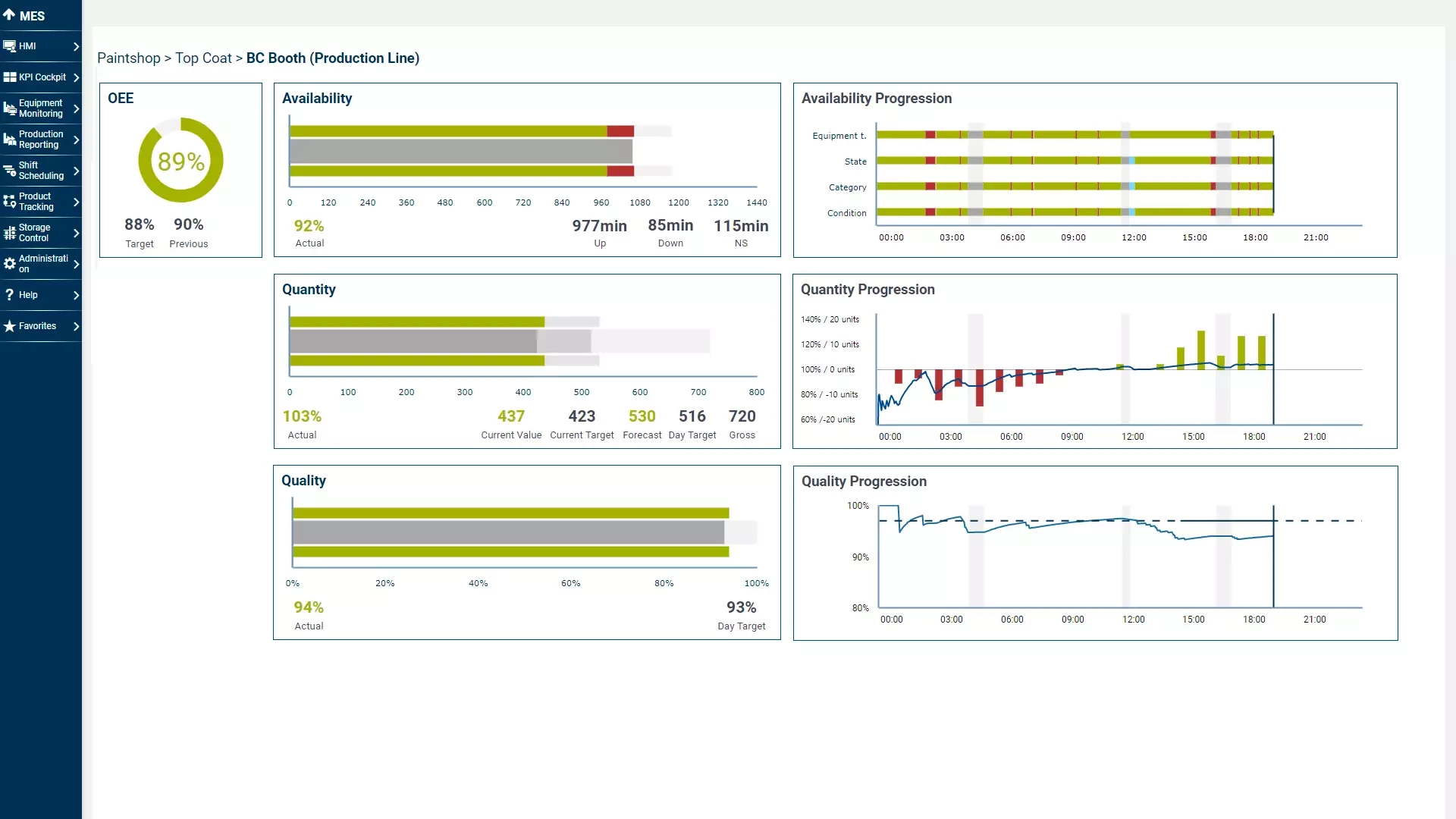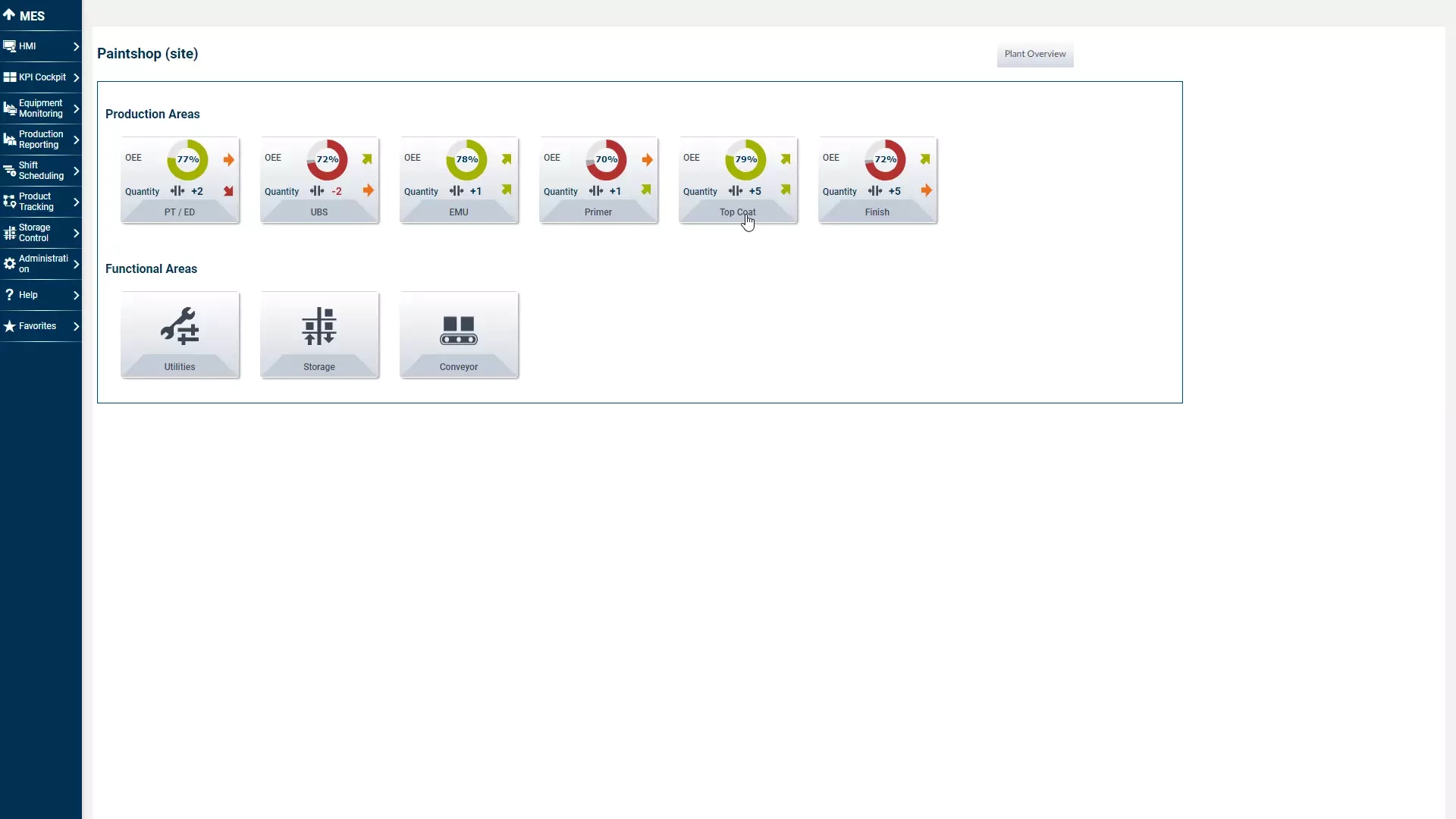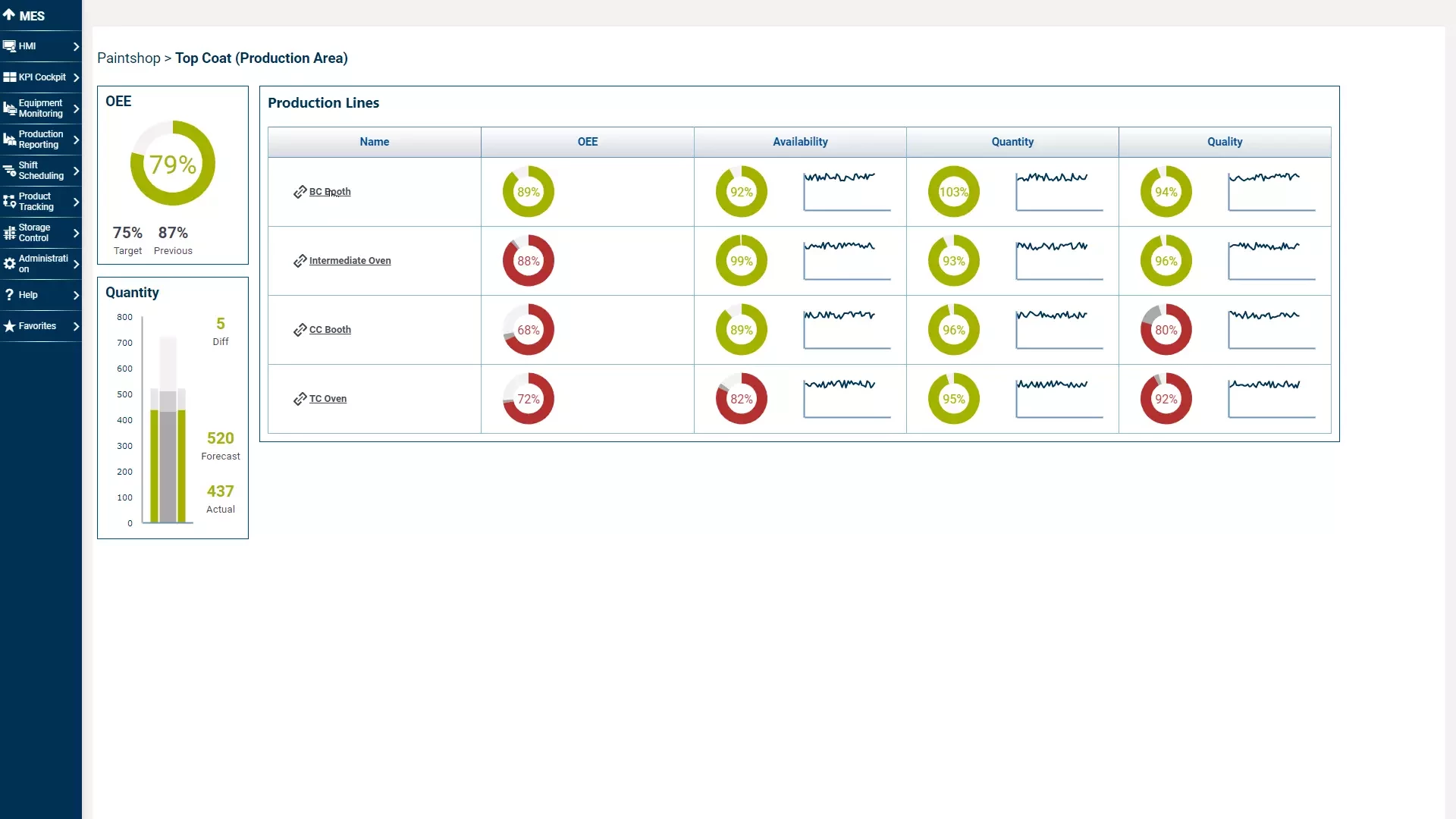Solutions based on business intelligence (BI) functions provide a fast overview of production, and in this way support decision-making in plants. They do this by collecting important information, preparing it, and displaying it in a clear format. What makes DXQbusiness.intelligence special? The historical production data is collated from different sources, transformed, and stored optimized for reading in the data warehouse so that it can be easily accessed later for analyses and reports. The separation of the data warehouse from the customer’s operational system has the big advantage that accessing the data warehouse does not cause any delays in production, unlike conventional servers which do not store data optimized for reading.
All key data on the screen
The data warehouse provides structures and tables for long-term orderly data storage across division boundaries. This is because DXQbusiness.intelligence is part of DXQcontrol, Dürr’s control technology for controlling an entire plant’s production. The new application from Dürr’s Manufacturing Execution System (MES) displays the production data in a clear, easily understood dashboard. It works in a similar way to the instrument panel in the cockpit of an airplane, which shows the pilot all key data on one screen. Transferred to car production in a plant, the dashboards show the managers mission-critical data to keep production on the right track.
Sound basis for data-driven decisions
Every decision-making process requires different data as a basis. To get the right overview, the user can navigate purposefully with DXQbusiness.intelligence: across the entire site, limited to specific production areas such as cathodic electrocoating or focused on individual lines like the cathodic electrocoating dryer. For production, the overall equipment effectiveness (OEE) as well as quality and quantity data is displayed, and for individual lines within the production area additionally the temporal progressions of the above-mentioned key figures.
Adaptable to individual needs
Users can also create reports and arrange them individually according to their priorities and company standards. This gives them a solid starting ground for decision-making based on the specific production. Situations that require particular attention can be quickly monitored and tracked using custom reports.





